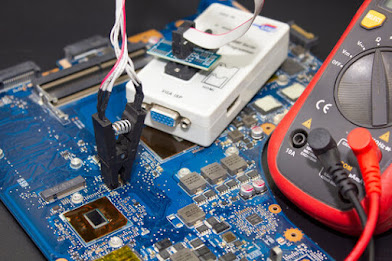The relationship with future AI and IT technician?
Introduction
As the field of artificial intelligence (AI) continues to grow and evolve, the relationship between AI and IT technicians is becoming increasingly important. In this article, we will explore the role of IT technicians in the integration and maintenance of AI technology, as well as the potential for collaboration between AI and IT professionals.
The role of IT technicians in the integration and maintenance of AI technology: As AI technology becomes more prevalent in the workplace, IT technicians are playing an increasingly important role in its integration and maintenance. This can involve tasks such as:
· Installing and configuring AI software and hardware.
· Troubleshooting and resolving issues with AI systems.
· Monitoring and maintaining the performance of AI systems.
· Updating and patching AI software to ensure it remains secure and reliable.
To effectively carry out these tasks, IT technicians must have a good understanding of the underlying technology and architecture of AI systems. They should also be familiar with the specific software and hardware used by the organization, as well as the best practices for maintaining and troubleshooting these systems.
The potential for collaboration between AI and IT professionals: While AI and IT professionals may have different areas of expertise, there is great potential for collaboration between the two fields. For example, AI experts can work with IT technicians to:
· Identify areas where AI can be used to improve business processes and reduce costs.
· Design and implement AI systems that are easy to integrate and maintain.
· Develop and implement security measures to protect AI systems from unauthorized access or attack.
In return, IT technicians can provide valuable insight into the technical requirements of AI systems and help to ensure they are integrated and maintained in a way that is efficient and effective.
Artificial intelligence (AI) is rapidly advancing and transforming the way we live, work, and communicate. The future of AI promises to bring about even more radical changes to our society, and its impact on the field of information technology (IT) is no exception. As a result, IT technicians are increasingly being called upon to understand and work with AI technologies, making it essential for them to stay current with the latest advancements in AI.
The Importance of AI in IT
AI has the potential to revolutionize the way IT systems are designed, developed, and maintained. For example, AI-powered systems can be used to optimize network performance, improve security, and automate routine tasks, such as software updates and backups. Additionally, AI can be used to analyze large amounts of data, such as customer data or sensor data, to identify patterns and trends that can inform business decisions.
As such, AI is becoming an increasingly important part of the IT landscape, and IT technicians need to be familiar with the various types of AI, such as machine learning, deep learning, and natural language processing, as well as the tools and technologies that support these types of AI.
The Role of IT Technicians in the AI Age
As AI becomes more prevalent in IT systems, the role of IT technicians is evolving to include more responsibilities related to AI. For example, IT technicians may be responsible for designing and implementing AI-powered systems, as well as maintaining and troubleshooting these systems.
Additionally, IT technicians may be responsible for training and managing AI systems, as well as ensuring that these systems are compliant with relevant laws and regulations. They may also be called upon to provide support and guidance to other members of the organization who are working with AI systems.
Upskilling and Continuous Learning
In order to stay current with the latest advancements in AI, IT technicians must be willing to invest time and resources into their own education and professional development. This may involve taking classes or workshops, attending conferences or seminars, or even pursuing advanced degrees in AI or related fields.
It is also important for IT technicians to stay up-to-date with the latest tools and technologies that are used in AI development and implementation. Some popular tools and technologies that IT technicians should be familiar with include TensorFlow, Keras, and PyTorch for machine learning, and natural language processing libraries such as NLTK, spaCy, and Gensim.
Additionally, IT technicians should seek out opportunities to gain hands-on experience with AI systems. This can include participating in hackathons or working on side projects that involve AI, or even volunteering for AI-related projects within their organization.
Collaboration and Interdisciplinary Skills
AI is not just a technical field but also a multidisciplinary field. It requires collaboration between different teams and departments, including data scientists, engineers, and business analysts. As such, IT technicians should be comfortable working in a collaborative environment and have strong communication and teamwork skills.
They should also have a strong understanding of the business and operational aspects of AI, such as identifying use cases and evaluating the potential ROI of AI projects. They should also be familiar with the ethical and regulatory considerations of AI, such as data privacy and bias in AI systems.
The Future of AI and IT Technician
AI is expected to continue to grow and evolve in the coming years, and its impact on IT will only increase. As such, IT technicians who are able to stay current with the latest advancements in AI and take on new responsibilities related to AI will be in high demand.
The future of AI and IT technician is bright, and the opportunities are endless. With the right skills, knowledge and mindset, IT technicians can position themselves for success in the AI age and play a critical role in shaping the future of technology.
The Impact of AI on Job Market
The increasing adoption of AI has the potential to disrupt the job market in a number of ways. Some experts predict that AI will lead to the automation of many jobs that are currently performed by humans, such as data entry and customer service. However, this does not necessarily mean that these jobs will disappear entirely. Instead, they may evolve to become more focused on tasks that require human skills, such as creativity, problem-solving, and critical thinking.
This shift in the job market will also create new job opportunities, particularly in the fields of data science, machine learning, and AI development. As the demand for AI expertise increases, the job market for IT technicians with AI skills is likely to grow as well.
The Importance of Embracing AI
Embracing AI is not just an option for IT technicians, it's a necessity. With the increasing adoption of AI, the role of IT technicians is evolving to include more responsibilities related to AI. As such, IT technicians who are able to stay current with the latest advancements in AI and take on new responsibilities related to AI will be in high demand.
Additionally, by embracing AI, IT technicians can improve their own productivity and effectiveness. For example, AI-powered systems can be used to automate routine tasks, such as software updates and backups, allowing IT technicians to focus on more complex and challenging tasks.
The Importance of Ethical Considerations in AI
As AI becomes more integrated into IT systems, it is important for IT technicians to understand the ethical considerations surrounding its use. AI systems have the potential to make important decisions that impact individuals and society as a whole, and it is crucial that these systems are designed and implemented in a way that is fair, unbiased, and transparent.
One of the biggest ethical concerns surrounding AI is bias, which can occur when the data used to train an AI system is not representative of the population it will be making decisions about. This can lead to unfair and inaccurate outcomes, particularly for marginalized groups. To mitigate this risk, it is important for IT technicians to be aware of and understand the potential sources of bias in AI systems, and to ensure that the data used to train these systems is diverse and representative.
Another important ethical consideration in AI is transparency. AI systems can make decisions that are difficult for humans to understand or explain, which can be problematic when these decisions have significant consequences. To address this, IT technicians should be familiar with techniques for making AI systems more interpretable and transparent, such as explainable AI (XAI) methods.
The Need for Responsible AI Practices
To ensure that AI systems are used ethically and responsibly, it is important for IT technicians to be familiar with and adhere to best practices for responsible AI. This can include taking steps to prevent bias and ensure transparency, as well as being aware of the potential societal impacts of AI systems and taking steps to mitigate negative effects.
It is also important for IT technicians to understand the legal and regulatory landscape surrounding AI, including laws and guidelines that pertain to data privacy, security, and discrimination. They should also be familiar with industry-specific regulations and guidelines, such as HIPAA for healthcare or GDPR for personal data privacy and protection.
Conclusion
The relationship between AI and IT technicians is constantly evolving as AI technologies continue to advance and become more integrated into IT systems. IT technicians must be willing to invest in their own education and professional development, stay up-to-date with the latest tools and technologies, and have strong collaboration and interdisciplinary skills. They must also embrace AI as it is a necessity for them to stay current with the latest advancements in AI and take on new responsibilities related to AI, which will be in high demand. By doing so, IT technicians can position themselves for success in the AI age and play a critical role in shaping the future of technology.
Written by: Bankole Adetoyosi (Bigtoyo)










Comments
Post a Comment